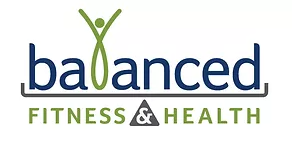.jpg)
Updated: Sep 8
Many businesses have been dealing with changes driven by COVID-19. You may have had to significantly reduce hours or temporarily cease production. You may have also needed to hire and get new employees out on the floor if you were in a high demand industry.
Regardless of either scenario, the risk of injuries increases if you don’t have a plan in place for returning employees or fast hire employees. In the world of keeping employees safe and healthy during a pandemic, multiple challenges have arisen:
-
Deconditioned Employees. Depending on the amount of down time and the personal habits of each individual employee, laid off employees may assume a sedentary lifestyle during the enforced leave from work. When out-of-shape, a.k.a. deconditioned, employees return to physically demanding jobs, the likelihood of aches and pain and even workers’ compensation claims can increase.
-
New Hires. When new employees are sent out to the floor quickly, it creates a different challenge. If they are not adequately prepared for the physical demands required for their new job, new hires are also at risk of becoming injured.
-
Returning after Recovery. You may also have employees who return to work after recovering from COVID-19. These employees are likely deconditioned and are dealing with new or exacerbated diseases or disorders such as pulmonary and heart issues. These workers may need extra time, assistance, and support to safely return to work. They may also need to be assigned transitional work duties if they are currently unable to return to a previous position.
The increased risk of injury can also have a significant financial impact on businesses. An increase in workers’ compensation claims, reduced staffing and reduced productivity can create an even worse financial situation.
Here are some tips to assist your employees with return to work or your new hires:
-
Provide a basic fitness program while employees are off work. The program needs to be simple, needing little to no equipment, convenient, and perceived as valuable to the employee. A basic walking program or challenge to maintain endurance could enable employees to maintain tolerance for a day on their feet. A fitness program not only helps with physical health but also keeps employees engaged as part of the company.
-
Begin a Health Initiative. Due to many employees being more sedentary while off work, weight gain is likely to occur and contributes to the workforce being deconditioned. Without their usual workday routine and activities, many employees will likely start to snack—and typically, they will choose less-than-healthy foods. Being overweight can increase the likelihood of injuries, such as plantar fasciitis, but it also decreases productivity due to loss of stamina. Rather than focusing on completely eliminating unhealthy foods, ask employees to focus on adding 2 servings of fruits and vegetables each day.
-
Assist Employees in Recovery of COVID-19. It is too soon to know the full effect of COVID-19 on employees after their recovery. You need to be aware that workers may be left with lung and heart issues that they may not have had prior or that may be worse. Employees will have lost muscle which impacts their strength and endurance. This may delay their ability to safely return to work.
-
Help New Hires Prepare. It is common for new hires starting a new and physically demanding job to experience muscle soreness as their body adapts. Education on expected soreness and fatigue and how it differs from an injury is critical during this transition. When possible, try to allow time for new hires to adapt to increased physical demands. Encourage physical activity and provide education on a fitness program to build tolerance prior to their first day.
Here’s how Balanced Fitness & Health can help you in transitioning new hires and employees returning to work after a break or illness:
Prevention
-
Pre-Shift Warm Up: We can create a pre-shift warm up and stretching routine that is tailored to your business’ needs.
-
Fit for Duty testing: We'll ensure the employee possesses the physical ability to perform the essential tasks of their job as well as identifying any work restrictions or effective transitional work plans.
-
Post-Offer Employment Tests: Our tests make sure job candidates possess the physical ability to perform the job and perform the job safely.
-
Job Coaching/Ergonomics: We can watch an employee perform required job tasks in order to make suggestions to address ergonomics and to educate on proper lifting and carrying techniques, which can minimize the risk of injury.
Intervention
-
On-site Therapy: Our therapists can become a trusted partner in your team. We provide prompt intervention to discomfort complaints as well as visits to the job floor to reinforce proper body mechanics.
-
First Aid: When a potential injury is reported, we can provide a brief assessment to help recommend the appropriate course of care for an employee.
-
Workers’ Compensation Rehabilitation: If an injury does require formal therapy ordered by the physician, we have experienced physical and occupational therapists that get the employee back to work faster with one-on-one care.
If you have any questions on how we can help you implement these changes and services, please feel free to reach out to us.

